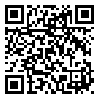BibTeX | RIS | EndNote | Medlars | ProCite | Reference Manager | RefWorks
Send citation to:
URL: http://jhygiene.muq.ac.ir/article-1-53-en.html

 , Seyyed Reza Hosseini1
, Seyyed Reza Hosseini1 
 , Sorayya Khafri1
, Sorayya Khafri1 
 , Aram Tirgar1
, Aram Tirgar1 
 , Zahra Aghalari *
, Zahra Aghalari * 
 1, Hossein Faraji1
1, Hossein Faraji1 
 , Reihaneh Barari2
, Reihaneh Barari2 
 , Zahra Namvar3
, Zahra Namvar3 

2- Allameh Tabatabaei University,
3- Ahvaz Jundishapur University of Medical Sciences
Background & Aims of the Study : Household hazardous waste is an important part of municipal solid waste in any community and if it is not managed properly, it can significantly damage the health of family, community and environment. The present study aimed at evaluating the knowledge, attitude and practices of households regarding the management of household hazardous wastes in Amirkola, Mazandaran, Iran. Materials and Methods: This cross-sectional study was conducted on 330 households of Amirkola, Mazandaran, Iran in the summer of 2014. A researcher-made data collection form in accordance with the objectives of the study was used to assess the knowledge, attitude and practices of Iranian urban residents regarding the management of household hazardous wastes through observation of researchers and interview. The validity of the data collection form was confirmed by five faculty members of the Departments of Environmental Health and Community Medicine. Data were analyzed using SPSS version 19, descriptive statistical indexes, T-test and Chi- square tests, and p<0.05 was considered as significant level. Results : The mean age of studied people was 39.1±10 years and 51.5% had high school and diploma degrees. In this study, 75%, 36.7% and 6.3% of households were good in the knowledge, attitude and practices, respectively. A major part of household hazardous wastes (78%) was the containers of disinfectants and detergents. 43.6% and 10.3% of households separated the household wastes and household hazardous wastes, respectively and no one recycled these wastes at home. 30% of households expressed that the lack of proper management of municipal on collecting the separated wastes as a major factor in the reluctance of them in waste separation. 86.7% of people need to get information about it. Conclusion : Despite appropriate knowledge of surveyed households on different kinds of household hazardous wastes, most of them had no good attitude and practices and most of them did not separate and recycle the wastes. It is necessary to train the households because of the central role of families in improving the public and environmental health and their tendency to get information on the management of household hazardous wastes.
Received: 2016/02/13 | Accepted: 2016/02/23 | Published: 2016/02/23
| Rights and permissions | |
 |
This work is licensed under a Creative Commons Attribution-NonCommercial 4.0 International License. |





